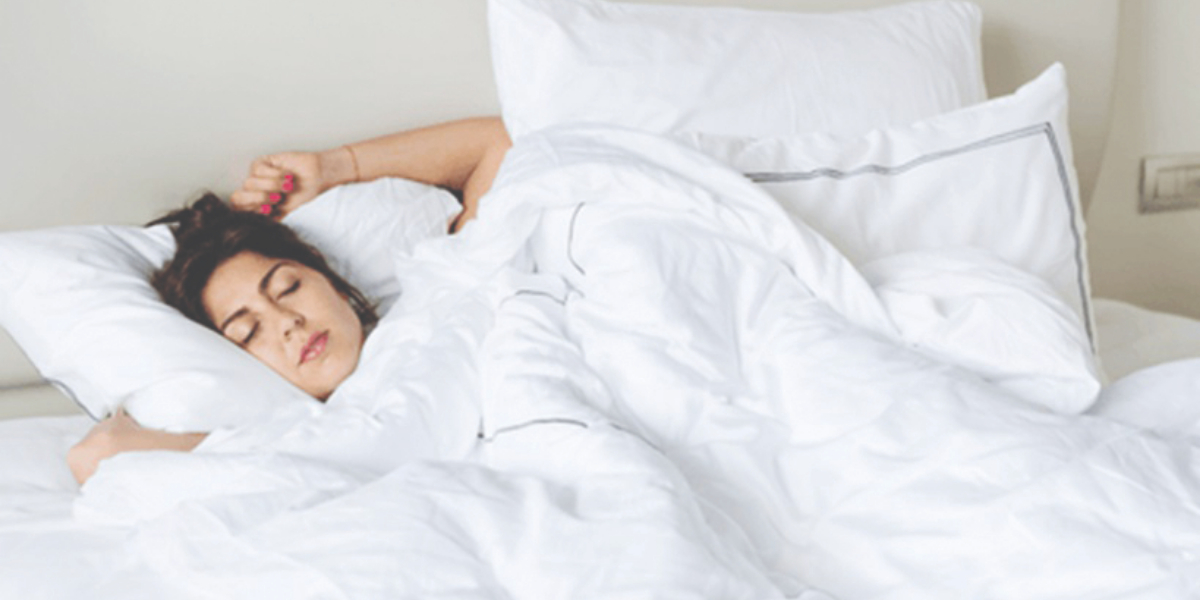
In general, sleep is viewed as a way to heal, relax, and recover from minor aches and pains, so you likely would not associate developing acne or dandruff, as well as rashes and respiratory problems, with sleeping at night. But what if it is true?
Have you or a someone you know recently experience an utterly unexpected, unexplainable acne outbreak despite following a daily skin care regimen? You follow proper hygiene when it comes to your skin, body, and clothing, and you eat well and exercise often to keep your immunity robust. Yet there are certain inexplicable skin and hair problems to which you seem to have no answer. Have you ever considered what touches your skin for a quarter of your life when you rest in bed? It is quite likely that your bedding is to blame.
Wondering how your bedding could wreak havoc on your skin and hair? Believe it or not, your bedding, from your bedsheet to pillow covers, as well as comforters, can make you sick owing to the plethora of germs.

You may find it pretty bizarre that the place where you relax and restore – your bed – could also cause acne breakouts and damage your hair. It all begins with bedding that has not been washed for a while or not been thoroughly cleaned.
How does your bedding affect your health?
It is not uncommon for people to make their beds very seldom. We lay down a clean bedsheet on the bed, and typically smooth it over the next morning after use, and the next thing we know, we are sleeping on the same single or double sheet for two weeks or sometimes a month even!

- Your skin and hair come into contact with your bed sheet each time you lie down. This means your wet or dried sweat, dead skin, loose hair, dandruff from your scalp, and even other bodily emissions are exposed to the sheet every time you do so. Each time the sheets and pillow covers are used, these remain stuck.
- There is a likelihood that whether you use a double or single bedsheet, it will absorb liquid and fluid spills. In fact, food crumbs may be present as well. These tend to gradually build up into bacterial colonies as it is used more and more.
- Subsequently, sheets, pillow covers and comforters get contaminated with every use, and continuing to use them after they have been contaminated increases the possibility of germs and microbes getting transferred back to your skin and hair. A variety of problems can arise from them, including rashes, acne, oiliness, boils, dandruff increase, and respiratory disorders and asthma flare-ups.
Ways to care for your bedsheet
It goes without saying that you should wash your used sheets before it gets too dirty, but how often?
- You can use the same sheets and pillow covers for two weeks in cold weather since you do not sweat as much as you would in other times of the year. In hot and humid weather, on the other hand, it is best to wash them after a week of use. You know, all those night sweats don’t just vanish. In fact, perspiration is only one of the reasons why mattresses might be ideal habitats for fungus to grow.
- You must always follow the manufacturer’s instructions when washing the bedding. Many use fabric softeners without realizing the harm they may do to both their bedding and their skin. Using harsh cleaning agents on your linens can similarly harm your skin (particularly those with sensitive skin). Generally, it is better to wash both small and large bedspreads in cold water. Hot water must absolutely be avoided. Use your regular detergent.
- Try to avoid dry cleaning or bleaching your bedding, as these don’t clean the sheets any better than the washing machine. These end up fraying the fabric.
- And of course, lastly and more importantly, you must thoroughly wash make-up off of your face before bed. Cosmetic residue can transfer from your skin to your pillow. If you are a makeup user, you must be aware of how cosmetics are tough on the skin, so it is vital to wash your face before going to bed. While cleansing may not remove all dirt and bacteria, it can reduce your skin’s contact with potentially harmful elements.

What’s a few additional loads of laundry or a change of detergents if it means radiant skin, right? Taking care of your face can be as simple as cleaning your beddings. You may rest easily and wake up with gorgeous skin if you follow these guidelines for preventing any skin or hair related issues caused by your pillowcase. We hope this article proves helpful in understanding how your bedding may create skin and hair problems, as well as how to properly care for your bed linen.
Catch all the Breaking News Event and Latest News Updates on The BOL News
Download The BOL News App to get the Daily News Update & Live News.












 Read the complete story text.
Read the complete story text. Listen to audio of the story.
Listen to audio of the story.